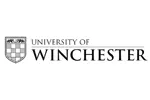About Writing for Children, MA - at University of Winchester
Writing for Children at Winchester explores the relationship between creative production and critical awareness of children’s literature and allows students to develop their writing skills in a stimulating and supportive environment.
Entry requirements: Normally a first or second class Honours degree in a related subject or professional experience in the area of study
If English is not your first language: IELTS 6.5 (including 6.5 in academic writing) or a TOEFL score of 575 (paper-based) or 232 (computer-based) or equivalent
Application process: UKPASS (full-time applicants only) or Direct Entry Application Form (part-time applicants only)
Programme ContentThe programme offers students the opportunity to develop creative work in progress, give and receive feedback and produce new writing. It also encourages students to discuss the work of established writers and consider the theoretical, social and cultural contexts of contemporary writing for children
ModulesCreativity and Children’s Literature is an introductory module, both practical and theoretical, which explores the notion of creativity in the arts generally as they relate to children.
Writing for Early Years addresses one of the fastest growing genres in writing for children, and aims to reveal that writing for image-based texts, such as those in television and the picture book, does not fall outside the category of or is the enemy of children’s literature. Rather, such writing can be seen to supplement the wide-ranging oeuvre that is writing for children.
Fiction for Children addresses fiction for the middle years of childhood up to and including teenage fiction.
Fantastic Fiction for Children allows students to investigate non-realist writing, the fantasy genre, historical fiction and non-mainstream fiction which is popular with children.
Writing for Education studies the craft of writing for education, for readers between the ages of 4 and 18, giving appropriate guidance to the appropriateness, delivery and presentation of ‘education’ for the different age groups
Publishing Project is a module in which all students develop a writing project to the point of submission publication; this could involve the development of a publishing proposal, initial chapters and letter to agent/publisher, or else a fully-fledged self-publication of some kind.
Independent Study Proposal is specifically designed to assist students in devising and refining their proposal for extended independent study. Students discuss their ideas for their project with their tutor and their peers in a supportive environment.
Independent Study modules lead to the completion of the dissertation.
All students must complete five modules including Creativity and Children’s Literature and Publishing Project and, as an alternative to the other modules on offer, students may choose up to two modules from the MA Creative and Critical Writing, which includes modules on writing poetry and scripts.
AssessmentModules are assessed by a combination of critical and creative work, either in discussion with a tutor or amongst peers.
DissertationStudents undertake a dissertation of 20,000 words as part of their independent study, along with a 3,000 word reflexive rationale, with full tutorial support. This can be a creative piece or pieces of work, supported by the creative rationale, or it can be a critical piece in its entirety. Students work independently and meet regularly with their supervisor for feedback and support.
CareersThe programme enhances writing skills and develops critical and creative awareness and understanding. Many graduates have gone on to become published writers and poets. Others have careers within teaching, journalism and the wider media industry as well as within the arts. Employers often favour individuals with excellent writing skills. The programme also provides a firm foundation for undertaking a research degree or further training.


